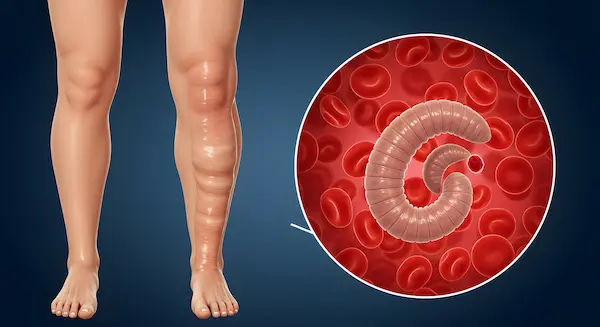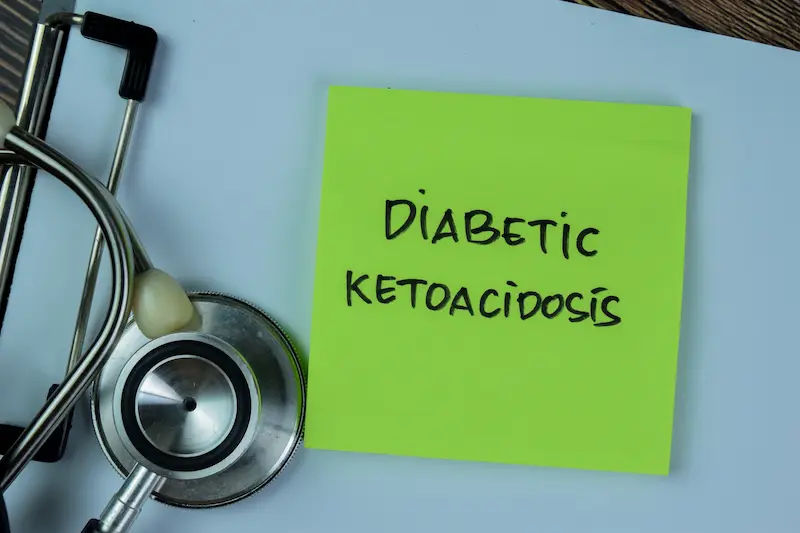Internet Addiction Disorder: Signs and Treatment
Explore Internet Addiction Disorder, including its signs, causes, and impact on daily life. Learn about effective treatment approaches and strategies to regain control and maintain a healthy digital balance.

Written by Dr. Siri Nallapu
Reviewed by Dr. Shaik Abdul Kalam MD (Physician)
Last updated on 13th Jan, 2026

Introduction
In today’s digital world, the internet is an essential part of our daily lives. From work and education to entertainment and social connections, we rely on it for almost everything. However, excessive internet use can sometimes turn into an addiction, affecting mental and physical health. This condition is called Internet Addiction Disorder (IAD). If you or someone you know spends too much time online and struggles to disconnect, this article will help you understand the signs, effects, and ways to manage it.
What Is Internet Addiction Disorder?
Internet Addiction Disorder (IAD) is a behavioral addiction where a person becomes overly dependent on the internet, leading to negative consequences in their personal, social, and professional life. People with IAD may compulsively use the internet for gaming, social media, online shopping, or browsing, often losing track of time and neglecting real-life responsibilities.
Consult a Psychologist for the best advice
Signs and Symptoms of Internet Addiction
Recognizing the signs early can help in managing the condition before it worsens. Common symptoms include:
1. Excessive Screen Time
Spending more time online than intended.
Feeling restless or irritable when not using the internet.
2. Neglecting Responsibilities
Ignoring work, studies, or household duties due to internet use.
Declining performance in school or office.
3. Social Withdrawal
Preferring online interactions over face-to-face conversations.
Losing interest in hobbies or activities that were once enjoyable.
4. Physical and Mental Health Issues
Eye strain, headaches, or back pain from prolonged screen time.
Sleep disturbances due to late-night internet use.
Anxiety or depression when unable to access the internet.
5. Failed Attempts to Cut Down
Repeatedly trying to reduce internet use but failing.
Feeling guilty about excessive usage but continuing anyway.
What Causes Internet Addiction?
Several factors contribute to IAD, including:
Escape from Stress or Boredom: Some people use the internet to avoid real-life problems.
Social Media and Gaming Addiction: The instant gratification from likes, comments, or gaming rewards can be addictive.
Underlying Mental Health Conditions: Anxiety, depression, or loneliness may lead to excessive internet use.
Lack of Offline Activities: Limited hobbies or social interactions can make the internet a primary source of entertainment.
How Does Internet Addiction Affect Health?
Excessive internet use can harm both mental and physical well-being:
Mental Health Effects
Increased anxiety and depression.
Poor concentration and memory issues.
Low self-esteem due to social media comparisons.
Physical Health Effects
Sleep deprivation leading to fatigue.
Weight gain or loss due to sedentary behavior.
Eye strain and headaches from prolonged screen exposure.
Impact on Relationships
Neglecting family and friends.
Conflicts with loved ones over internet use.
Tips to Manage Internet Addiction
If you feel your internet use is getting out of control, here are some ways to regain balance:
1. Set Time Limits
Use apps that track and limit screen time.
Schedule specific hours for internet use and stick to them.
2. Find Offline Alternatives
Engage in hobbies like reading, sports, or art.
Spend quality time with family and friends without digital distractions.
3. Practice Digital Detox
Take short breaks from screens every hour.
Designate "no-internet" zones (e.g., bedroom or dining table).
4. Improve Sleep Hygiene
Avoid screens at least an hour before bedtime.
Follow a regular sleep schedule.
5. Seek Professional Help
If self-control is difficult, consider therapy or counseling.
Cognitive Behavioral Therapy (CBT) can help change unhealthy internet habits.
When to Seek Professional Help?
If internet addiction is affecting your daily life, relationships, or mental health, it’s important to seek professional support. A doctor or therapist can help you develop healthier habits and address underlying issues like anxiety or depression.
How Apollo 24|7 Can Help?
If you or a loved one is struggling with internet addiction, Apollo 24|7 offers expert consultations with psychologists and psychiatrists who can provide guidance and treatment. You can easily book an online session or take a mental health assessment to understand your condition better.
Final Thoughts
While the internet is a valuable tool, excessive use can harm your well-being. Recognizing the signs early and taking small steps to reduce dependency can make a big difference. If you need help, don’t hesitate to reach out to a professional.
Consult a Psychologist for the best advice
Consult a Psychologist for the best advice

Miss. Vaishnavi Sankeshwar
Psychologist
5 Years • Msc Clinical Psychology
Bengaluru
Apollo Clinic, JP nagar, Bengaluru

Ms Rajashree Navthale
Psychotherapy & Counselling (ASM)
8 Years • MA in Counselling & Psychotherapy, PG Diploma in Counselling & Psychotherapy.
Akola
Connect Counselor, Akola

Ms. Gunjan Arya
Psychologist
4 Years • MA Psychology
Delhi
Psych Therapy By Gunjan Arya, Delhi

Ms. Sapna Zarwal
Psychologist
20 Years • Msc (Applied Psychology), Ph D ( Special Education)
Gurugram
SOOTHING ZEN, Gurugram
(25+ Patients)

Ms. Monalisa Kha Bhaduri
Psychologist
12 Years • MA Psychology
Kolkata
Ms Monalisa Kha Bhaduri's Clinic, Kolkata
(250+ Patients)




